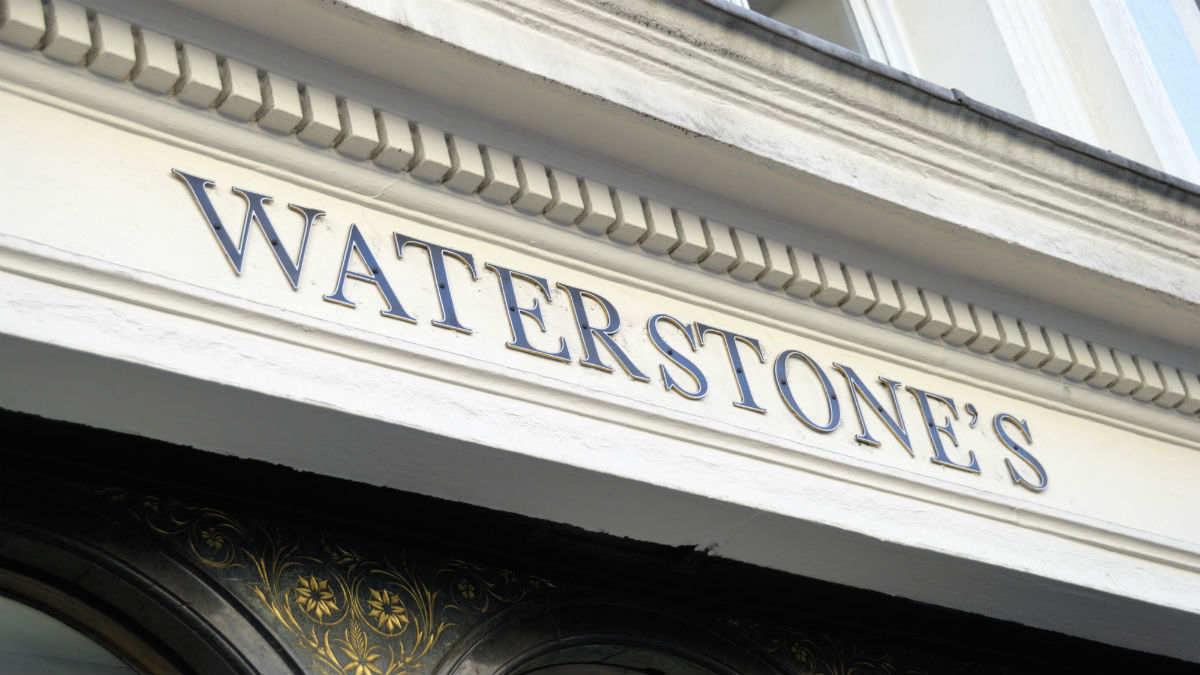Waterstones profits from return to 'old fashioned book-selling'
Focussing on local communities sees bookseller move into black for first time in seven year

A free daily email with the biggest news stories of the day – and the best features from TheWeek.com
You are now subscribed
Your newsletter sign-up was successful
A future stock market listing for Waterstones is looking more likely after the bookseller posted its first profit since the financial crash, says The Guardian.
Sales surged more than four per cent to £409m in 2016, generating a pre-tax profit of £9.8m, according to annual results published today. That compares with a loss of £4.5m for 2015.
"The last time the company reported any pre-tax profit was in 2009, when it made £7.9m," chief executive James Daunt told the Daily Telegraph.
The Week
Escape your echo chamber. Get the facts behind the news, plus analysis from multiple perspectives.

Sign up for The Week's Free Newsletters
From our morning news briefing to a weekly Good News Newsletter, get the best of The Week delivered directly to your inbox.
From our morning news briefing to a weekly Good News Newsletter, get the best of The Week delivered directly to your inbox.
Explaining the change, he said: "We used to be a seller of bestsellers, but now we’re trying to be community bookshops in a more old-fashioned and traditional way."
Daunt told the Guardian that book sales are partly being driven by allowing staff to stock and push titles they believe would work in their local store, as well as helping readers discover new or less promoted authors.
"This has increased its sales of more 'heavyweight' fiction books," says the Telegraph. "The Essex Serpent, a novel by newcomer Sarah Perry, was its best-selling book last year."
Titles aimed at children and teenagers continued a longer-term upward trend, while even sales of adult novels were back on the rise.
A free daily email with the biggest news stories of the day – and the best features from TheWeek.com
At one time it seemed the rise of digital books and Amazon's Kindle would destroy traditional bookshops. However, digital sales are on the wane and Waterstones has stopped stocking e-readers.
"I don’t think readers are going off digital reading. It's being used in a more indulgent way, when travelling, or if you are old and need a big font," Daunt told the Guardian.
"But there are lots of studies which have found that reading a physical book is a very different experience. You remember it much more. It resides with you more than an e-book."
Waterstones was bought for £53m by Russian billionaire Alexander Mamut in 2011. The return to profit has increased speculation he may "cash out within the next few years", most likely through a listing.
-
 Political cartoons for February 14
Political cartoons for February 14Cartoons Saturday's political cartoons include a Valentine's grift, Hillary on the hook, and more
-
 Tourangelle-style pork with prunes recipe
Tourangelle-style pork with prunes recipeThe Week Recommends This traditional, rustic dish is a French classic
-
 The Epstein files: glimpses of a deeply disturbing world
The Epstein files: glimpses of a deeply disturbing worldIn the Spotlight Trove of released documents paint a picture of depravity and privilege in which men hold the cards, and women are powerless or peripheral
-
 Labour shortages: the ‘most urgent problem’ facing the UK economy right now
Labour shortages: the ‘most urgent problem’ facing the UK economy right nowSpeed Read Britain is currently in the grip of an ‘employment crisis’
-
 Will the energy war hurt Europe more than Russia?
Will the energy war hurt Europe more than Russia?Speed Read European Commission proposes a total ban on Russian oil
-
 Will Elon Musk manage to take over Twitter?
Will Elon Musk manage to take over Twitter?Speed Read The world’s richest man has launched a hostile takeover bid worth $43bn
-
 Shoppers urged not to buy into dodgy Black Friday deals
Shoppers urged not to buy into dodgy Black Friday dealsSpeed Read Consumer watchdog says better prices can be had on most of the so-called bargain offers
-
 Ryanair: readying for departure from London
Ryanair: readying for departure from LondonSpeed Read Plans to delist Ryanair from the London Stock Exchange could spell ‘another blow’ to the ‘dwindling’ London market
-
 Out of fashion: Asos ‘curse’ has struck again
Out of fashion: Asos ‘curse’ has struck againSpeed Read Share price tumbles following the departure of CEO Nick Beighton
-
 Universal Music’s blockbuster listing: don’t stop me now…
Universal Music’s blockbuster listing: don’t stop me now…Speed Read Investors are betting heavily that the ‘boom in music streaming’, which has transformed Universal’s fortunes, ‘still has a long way to go’
-
 EasyJet/Wizz: battle for air supremacy
EasyJet/Wizz: battle for air supremacySpeed Read ‘Wizz’s cheeky takeover bid will have come as a blow to the corporate ego’